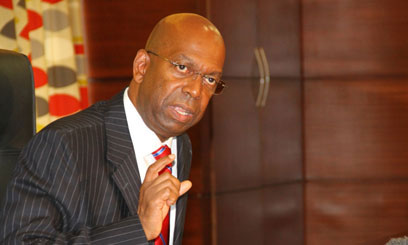 NAIROBI, Kenya, Sep 8 – Safaricom has hinted at a possible call rate increase, citing a “hostile” business environment.
NAIROBI, Kenya, Sep 8 – Safaricom has hinted at a possible call rate increase, citing a “hostile” business environment.
Safaricom Chief Executive Officer (CEO) Bob Collymore pinpointed rising inflation, high fuel prices, the weak shilling and trends in other markets as some of the factors that could cause an upward price adjustment in coming months.
“In Uganda the prices are going up and in India where people have benchmarked the lowest possible prices; those prices are going up. The cost of running a network is coming up. So I wouldn’t be surprised if the higher costs ultimately lead into higher retail prices at some point,” he said.
Safaricom has continuously maintained that low prices, brought on by intense price war competitions in the Kenyan mobile market were unsustainable, an assertion that Mr Collymore says is proving to be right.
Kenyans have been enjoying cheaper calling and texting rates since August last year when the Communications Commission of Kenya (CCK) issued guidelines that slashed the interconnection rates by 50 percent to Sh2.21 per minute.
If Safaricom goes ahead and reviews its rates however, it will have to ensure that they are not above the price caps set by the CCK on the mobile and fixed termination services.
Should this happen, then other operators can be expected to follow suit and raise their costs as well, a move that might not go down well with many mobile phone subscribers.
These customers have had to put up with a government decision to suspend the implementation of the glide path that should have seen calling rates gradually decline to what the regulator terms as efficient cost levels.
A day after President Mwai Kibaki’s directive to immobilise all unregistered SIM cards, Safaricom expressed its support of the government’s effort.
“We do welcome clarity from the government because we support the principle of subscriber registration. We actually have about 16.2 million of our customers who are already registered. That actually exceeds the monthly active customers so we don’t really think it’s going to have an effect on us,” Mr Collymore said.
He added that with the increase of fraud in the mobile phone market frustrating unassuming customers, the move will address the issue of tracking high-tech crime perpetrators.
Safaricom reported a 12.9 percent growth in revenues boosted by an 8.8 percent increase in customer numbers for the year ending 31 March 2011.
The company’s overall revenue posted at Sh94.83 billion, while after tax profit came in at Sh13.16 billion.
However, with a 20 cent dividend payout, most shareholders were less than impressed taking Safaricom’s board to task over what they disputed was an unsatisfactory amount.
With an estimated 800,000 shareholders the firm’s Chairman Nicholas Ng’ang’a said he hopes the dynamics of the company’s performance will bring up the share prices.
“We’ve been looking at various ways of trying to increase the share price. As far as consolidation is concerned we have always come up against a problem in the structure of legislation in this country where we are not allowed to participate in the purchase of our own shares,” he said.
He added that after the revision of the Kenyan Company’s Act such stipulations will be removed to allow the company to enhance shareholder value.
Mr Collymore, however, insisted that given an unfavorable market and an even more stringent regulatory environment, the dividend prices reflected a much higher payout margin than expected.


































